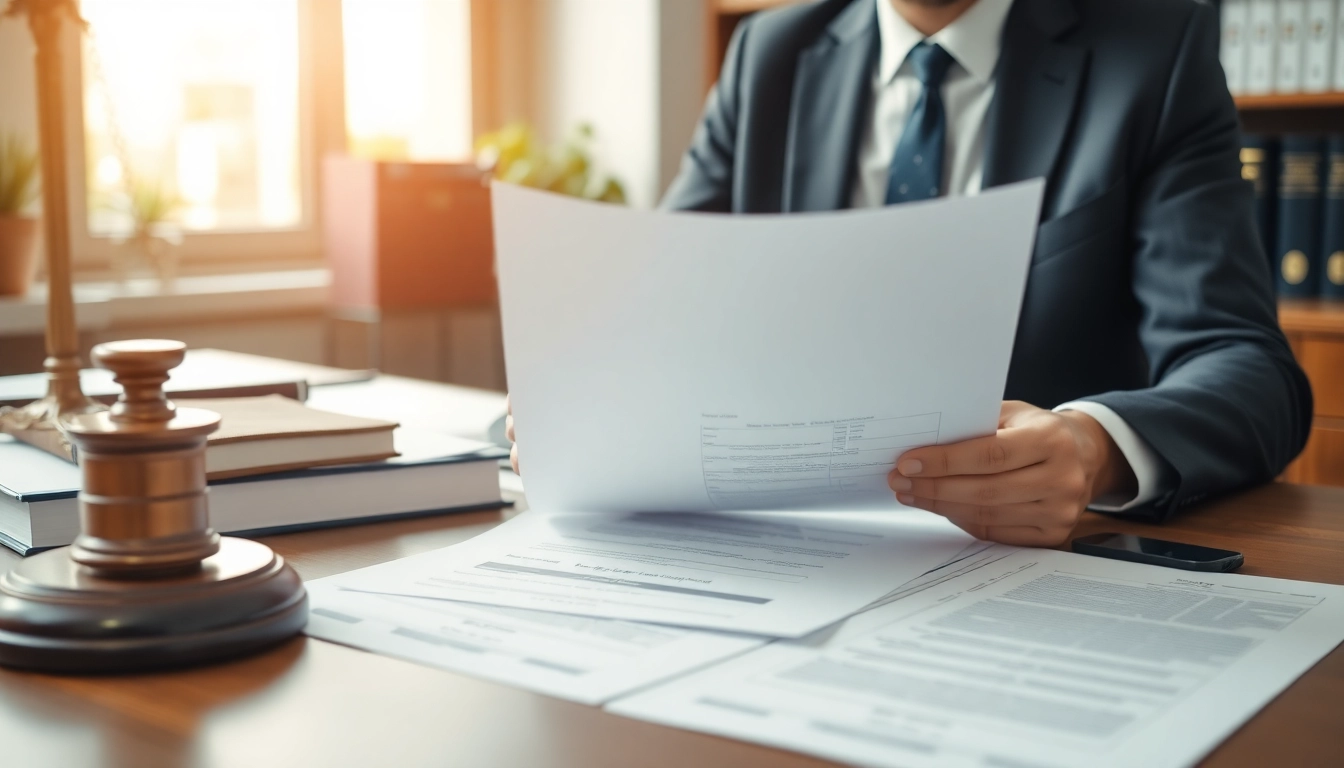Understanding Mass Tort Marketing
Definition and Importance of Mass Tort Marketing
Mass tort marketing refers to the targeted strategies and practices used to attract clients involved in mass tort litigation—a category of law that brings together numerous individuals who have suffered harm due to a common product, event, or action. Unlike traditional personal injury cases, where the focus is on individual claims, mass torts handle a collective wave of claims, such as those arising from defective drugs, environmental disasters, or widespread consumer fraud. This type of marketing is vital for legal practitioners as it helps identify potential clients who are unaware of their rights and facilitates compensation for their injuries.
In an age where digital presence is crucial, understanding mass tort marketing is more important than ever. An effective strategy can significantly increase a law firm’s visibility and client base in a highly competitive market.
Common Mass Tort Cases and Their Impact
Common cases in mass tort marketing typically include pharmaceutical litigation, consumer product liability, environmental exposure, and various personal injury cases stemming from corporate negligence. For example, lawsuits against major pharmaceutical companies for painkillers that led to addiction or serious health issues have gained much media attention. These cases not only affect the individuals involved but also have wide-reaching implications for public health and safety, prompting discussions about regulations and corporate responsibility.
The impact of these cases can be profound—providing financial recompense to thousands of affected individuals, prompting changes in corporate practices, and leading to regulatory reforms that protect consumers from future harms. Thus, effective mass tort marketing doesn’t just drive business; it serves as a catalyst for social change.
Challenges in Mass Tort Marketing for Legal Professionals
While mass tort marketing can be incredibly beneficial, several challenges can hinder its effectiveness. One of the primary issues is intense competition within the legal field, as various firms vie for the same client base. Additionally, many potential clients may not even realize they are part of a mass tort case, leading to difficulties in outreach.
Another challenge is maintaining compliance with ethical standards and state regulations. Legal professionals must navigate a complex landscape of advertising laws, ensuring their marketing efforts remain appropriate and respectful. Poorly executed marketing could not only damage a firm’s reputation but also impact potential client relationships negatively.
Key Strategies for Effective Mass Tort Marketing
Leveraging Digital Marketing Techniques
In today’s digital world, employing online marketing techniques is crucial for gaining traction in mass tort cases. Search Engine Optimization (SEO) is a foundational element, ensuring that law firms rank highly on search engine results pages for relevant queries. This can be achieved by optimizing content with relevant keywords, creating informative blog posts, and developing compelling landing pages specifically tailored to mass torts.
Furthermore, pay-per-click advertising (PPC) can effectively target individuals searching for legal help related to mass tort cases, driving qualified leads to a law firm’s website. Retargeting campaigns can also be employed to reach users who have previously expressed interest in related topics, reminding them of available legal resources.
Building an Engaging Client Outreach Plan
A robust client outreach plan is essential in mass tort marketing. This includes cultivating a strong brand presence that resonates with potential clients, fostering trust, and demonstrating expertise. Law firms should consider hosting free informational webinars or seminars to educate the public about mass tort cases and their rights, effectively positioning themselves as authorities in the field.
Moreover, personalized communication strategies, such as tailored emails or follow-up calls, can significantly improve engagement with potential clients and enhance conversion rates. Building a referral system where satisfied clients can refer others can also help establish a steady flow of leads.
Using Social Media for Mass Tort Awareness
Social media platforms offer a dynamic avenue for enhancing mass tort awareness. Actively engaging on platforms like Facebook, Instagram, and Twitter enables law firms to reach a broader audience while sharing relevant content, news updates, and legal insights related to mass tort issues. This not only helps build community connections but also opens the door for potential clients to engage with the firm authentically.
Additionally, utilizing video content can make complex legal information more digestible. Short, informative videos explaining mass tort claims or success stories of previous cases can capture audience attention and encourage shares, ultimately expanding reach and influence.
Best Practices for Mass Tort Campaigns
Creating Compelling Content That Drives Action
Content is key when it comes to mass tort marketing. It is essential for law firms to produce high-quality, informative content that not only educates potential clients but also encourages them to take action. Case studies, testimonials, and articles that highlight successes in mass tort cases can prove invaluable in building a firm’s credibility.
Moreover, creating guides or resource pages can provide potential clients with the information they require to understand mass tort litigation better and how they can benefit from legal assistance. High-quality visual content, such as infographics summarizing the mass tort process, can also engage clients effectively.
Measuring and Analyzing Campaign Performance
It is crucial to measure the effectiveness of mass tort marketing campaigns diligently. This involves analyzing key performance indicators (KPIs) such as website traffic, lead generation rates, conversion rates, and social media engagement. Tools like Google Analytics can offer insight into how potential clients are finding the firm and what content resonates most with them.
Conducting A/B testing on various marketing tactics—such as different ad copies or landing page designs—can also identify what works best. Based on these analyses, firms can adjust their approach, optimizing future campaigns for better results.
Adapting Strategies Based on Feedback
Feedback from clients and prospects is an invaluable resource that law firms should actively seek. Conducting surveys post-consultation or seeking informal feedback can yield insights into client perceptions of the firm’s marketing efforts.
By being open to criticism and suggestions, firms can refine their marketing strategies to align more closely with client needs and expectations. Continuously adapting based on feedback is key to staying relevant and effective in mass tort marketing.
Legal Considerations in Mass Tort Marketing
Compliance with Advertising Regulations
Legal professionals must prioritize compliance with advertising regulations in their mass tort marketing efforts. Various states have their own rules regarding how legal services can be advertised, specifically prohibiting misleading or exaggerated claims. Understanding these regulations is crucial to maintaining a firm’s integrity and avoiding potential disciplinary actions.
Additionally, law firms must ensure that they are not engaging in solicitation practices that are considered unethical. Ethical advertising not only protects the firm but also reassures potential clients that they can trust the services being offered.
Ethical Marketing Practices for Lawyers
Practitioners in law must navigate the fine line between effective marketing and ethical practice. This involves being transparent with clients regarding fees, services, and potential outcomes. Establishing clear communication about what clients can expect can build trust and enhance satisfaction.
Moreover, avoiding aggressive marketing tactics that could be perceived as exploitative is crucial. Instead, firms should focus on providing value through education and support, reinforcing their role as allies for clients seeking justice.
Managing Client Consultations Effectively
The client consultation process is an essential component of mass tort marketing. Law firms should create a welcoming environment where potential clients feel comfortable discussing their experiences and concerns. Active listening and empathy are vital during these interactions, as many clients may be dealing with significant emotional or physical distress due to their situation.
Providing clear information about the mass tort process, possible outcomes, and next steps can help demystify the legal journey for clients. Additionally, following up after consultations can foster ongoing communication and strengthen client relationships.
Future Trends in Mass Tort Marketing
The Role of Technology in Mass Tort Cases
Advancements in technology will continue to shape the landscape of mass tort marketing. As the legal profession becomes increasingly digitized, firms must adapt to incorporate new technologies that streamline case management and improve client experiences. Utilizing artificial intelligence for data analysis, case law research, and client matching can enhance overall efficiency, allowing firms to focus on strategy and client service.
Moreover, virtual consultations and online communication platforms have become more mainstream, offering clients convenient options for engagement. As technology continues to evolve, law firms must stay informed about emerging tools that can enhance their marketing efforts.
Emerging Marketing Channels to Watch
As consumer behaviors shift, new marketing channels will emerge, and law firms must be prepared to leverage them. Platforms like TikTok or emerging social media networks can play a role in reaching younger demographics who might not traditionally engage with legal services. Integrating video content into these platforms could effectively raise awareness about mass tort cases among a broader audience.
Additionally, marketing through podcasts or partnering with influencers within associated industries can expand reach. These channels can provide valuable educational content while positioning firms as thought leaders in the field.
Preparing for Changes in Legal Marketing Regulations
The legal landscape is ever-evolving, and marketers must stay vigilant about potential regulatory shifts that impact advertising and outreach. Proposed changes to legal marketing regulations or ethical standards could emerge, necessitating law firms to reassess their strategies promptly.
By staying informed and fostering an adaptive approach, firms can navigate these challenges while continuing to engage clients effectively. Regular training on compliance and best practices can also equip marketing teams to handle changes proactively.



